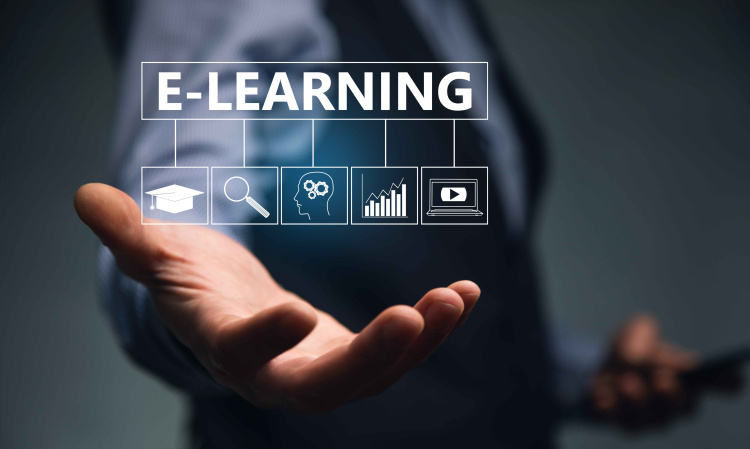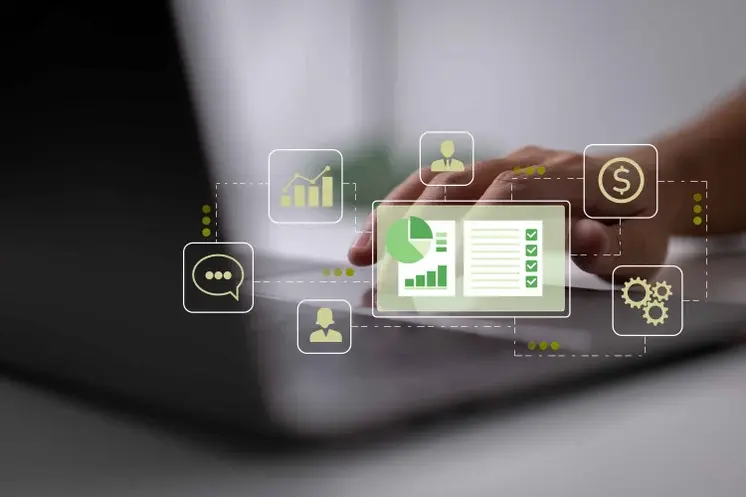We will delve into the most prominent Learning Management System Trends of 2024, exploring how these advancements are not just shaping the future of learning technology but also revolutionizing the corporate training landscape. Whether you're a learning and development professional, an educator, or a curious learner, join us as we uncover the exciting possibilities these trends bring to the table, offering a glimpse into a future where learning is more personalized, engaging, and impactful than ever before.
Current State of Learning Management System Trends
The current LMS landscape is a vivid reflection of the rapid technological evolution and shifting user expectations, setting the stage for an array of transformative LMS trends. As we observe the corporate LMS trends in 2024, it's evident that the integration of cutting-edge technologies has substantially elevated the capabilities of these systems. Providers are now offering more personalized, adaptive, and user-centric learning experiences, aligning with the growing demand for flexibility and efficiency in corporate training. This responsiveness to user needs underscores a significant shift in the LMS domain, where the emphasis is on creating immersive, intuitive, and outcome-driven learning environments. The current state of LMS, enriched by these innovative trends, promises a future where learning is not just an organizational priority but a continuous, engaging, and deeply integrated part of the professional journey.
Also Read: Best Practices for Effective LMS Implementation
Emerging Trends in Learning Management System
In LMS trends, personalization and adaptive learning are taking center stage, thanks to AI and machine learning. These technologies are redefining learning paths, making them as unique as the individuals undertaking the journey. By analyzing learner data and behavior, AI-driven LMSs can tailor content, pacing, and learning strategies to meet the specific needs of each user. This personalized approach not only enhances engagement but also boosts the effectiveness of learning, ensuring that every training session is impactful and aligned with individual goals and preferences.
Further, the incorporation of gamified elements into LMS is a trend that's transforming the landscape of corporate training. By integrating game mechanics like points, badges, and leaderboards, LMS providers are making learning a more engaging, motivating, and enjoyable experience. Success stories from various organizations testify to the effectiveness of gamification in boosting learner engagement and retention rates. As we move into 2024, expect to see even more creative and sophisticated gamified learning experiences, making education not just a task, but an adventure.
Additionally, as the world leans more towards mobile-first strategies, LMS providers are not far behind. Recognizing the importance of accessibility and flexibility in learning, there's a growing trend towards mobile-friendly LMS solutions. These platforms are designed to provide a seamless learning experience across devices, ensuring that learners can engage with content anytime, anywhere. This trend is a response to the modern learner's lifestyle, offering convenience without compromising the quality of the learning experience.
The Future of Learning Management Technology
The future of Learning Management System Trends is heading towards more immersive learning experiences with the integration of Virtual Reality (VR) and Augmented Reality (AR). These technologies offer a new dimension to learning, providing immersive, interactive environments where skills can be practiced and concepts visualized in real-time. While the potential for enhanced engagement and retention is immense, integrating VR and AR into LMS also presents challenges, including technological complexity and higher costs. However, as these technologies become more mainstream, they're set to redefine the boundaries of digital learning.
Additionally, the power of big data and learning analytics is reshaping LMS trends, turning systems into powerful tools for understanding learner behaviors and improving educational outcomes. By harnessing the vast amounts of data generated by learners, educators can gain insights into learning patterns, preferences, and challenges. Predictive analytics is also emerging as a significant trend, offering the ability to anticipate learner needs and tailor interventions accordingly. This data-driven approach ensures that the learning experience is not just reactive but also proactive, paving the way for more personalized and effective education.
Moreover, the shift towards collaborative learning and the integration of social features in LMS highlight the recognition of learning as a social activity. By fostering community-based learning environments, LMS providers are encouraging knowledge sharing, peer feedback, and collaborative problem-solving. This trend not only enriches the learning experience but also aligns with the natural human inclination towards social interaction, making learning a more connected and communal endeavor.
What are the Challenges and Considerations in Implementing LMS
Amidst the technological advancements, data privacy, and security remain paramount concerns in the implementation of LMS. As systems become more sophisticated and data-driven, the potential for breaches and misuse of information grows. It's crucial for both LMS providers and users to adhere to best practices in data protection, ensuring that learner information is safeguarded against unauthorized access and threats.
As organizations grow, the need for scalable LMS solutions becomes more pronounced. An ideal LMS should be able to accommodate an increasing number of users without performance degradation. Additionally, seamless integration with other tools and platforms is essential to create a cohesive and efficient learning ecosystem. These considerations are critical in ensuring that the LMS remains a supportive, rather than a restrictive, force in the organization's growth.
Preparing for the Future of LMS
In LMS staying ahead of the curve is not just an advantage; it's a necessity. Educators and organizations must remain vigilant, keeping an eye on emerging trends and technologies. Embracing continuous learning and adaptability is key to navigating the ever-evolving market. By being proactive and receptive to change, stakeholders can ensure that their LMS strategies remain relevant and effective. Investing in an LMS is a significant decision, and with the rapid pace of technological advancements, it's more important than ever to choose a system that's not just suitable for current needs but also capable of adapting to future trends. Stakeholder feedback and pilot programs can be invaluable in making informed decisions, ensuring that the chosen LMS aligns with both immediate and long-term objectives.
As we explore the key LMS trends and their potential impact on the future of learning technology, one thing is clear: the landscape of digital learning is in a constant state of flux, driven by innovation and a deepening understanding of how we learn. The trends of 2024, from AI-driven personalization to immersive VR/AR experiences, are not just shaping the future; they're actively crafting a new paradigm in education and corporate training. As we embrace these changes, the importance of staying informed, adaptable, and proactive cannot be overstated. The future of LMS is not just about technology; it's about creating a more effective, engaging, and personalized learning journey for everyone.
Request a Demo Now!

.png?width=70&height=70&name=Team%20HONO%20logo-01%20(1).png)






.webp)
.jpg)
-1.webp)